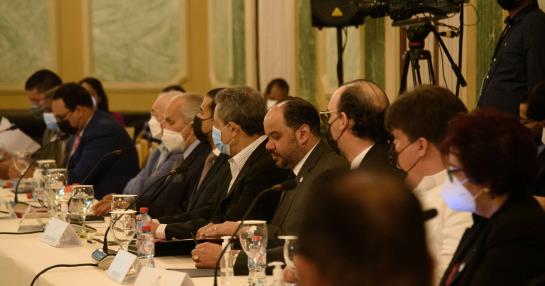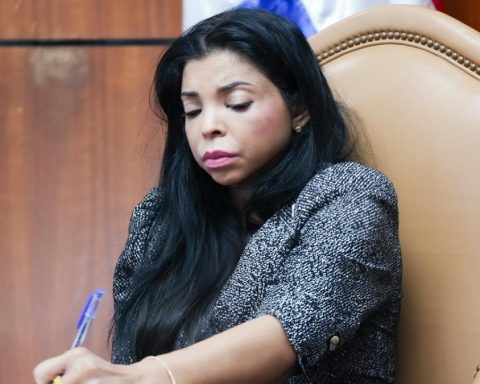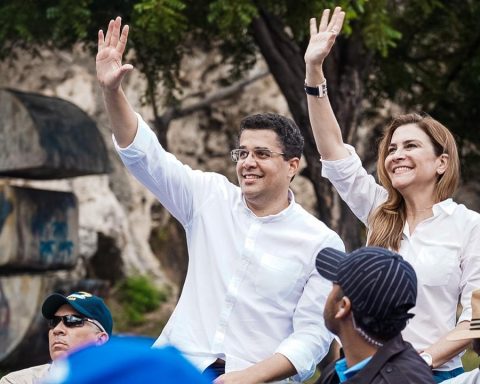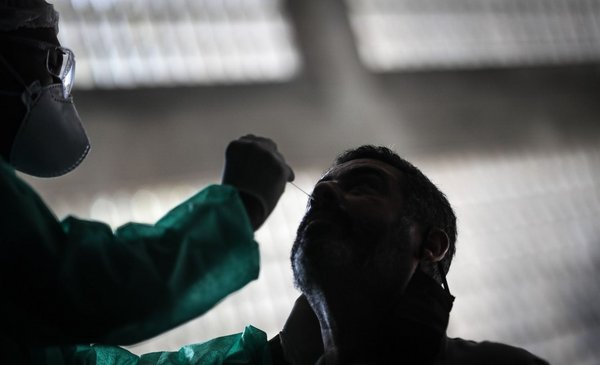The representatives of the political parties that participated this Wednesday morning in the opening of the Thematic Table for Institutionality and Transparency reject or view with mistrust the proposal of the Government of amend the constitutionto make the Office of the Attorney General of the Republic independent of the Executive Power.
Henry Merán, who attended on behalf of the Fuerza del Pueblo (FP) party, categorically rejected any support from that organization for a reform of the Magna Carta for that or any other reason, because, according to him, the independence of the Attorney General’s Office of the Republic is already enshrined in the Constitution of the year 2010, in force.
“In this case, what corresponds is to provide it with exemplary citizens, as is the current case,” said the deputy. He emphasized that the FP does not support and will not support any constitutional reform for this issue or for the institutional reform of the State proposed by the Government.
When questioned about whether the FP would submit to the decision of the CES, in the event that the majority of the participants are in favor, Merán reiterated the party’s refusal, previously explicitly established by its main figure, former president Leonel Fernández.
Even if the government proposal were agreed upon at the CES, its approval in Congress would not be guaranteed, taking into account the position of Felucho Jiménez, a participant representing the Dominican Liberation Party (PLD).
Jiménez assured that the CES does not replace the National Congress and does not have the authority to impose criteria on it, since this Power of the State is the one that has the authority to prepare and approve laws. He questioned that legislators were not present at the meeting.
“We may or may not agree, but we cannot pretend that what is agreed here is binding except, I understand, those things in which we have unanimously agreed,” the leader stressed.
The Legal Subconsultant of the Executive Power, Luis Montilla Castillo, guaranteed that the Government is committed to promoting the agreed points, but warned that they have no way of forcing the political parties to comply with the agreements.
Guillermo Moreno views with suspicion the issue of modifying the substantive law, because this practice has been very traumatic in the history of the Dominican Republic, “because it is common for each government to want to make a Constitution to its measure.”
The president of Alianza País said that he does not see the authorities’ proposal in this regard very clearly, and that he wants to wait until he knows it more thoroughly.
Antoliano Peralta, legal advisor to the Executive Branch, explained the Executive Branch’s proposal, according to which the constitutional reform would be complemented with a series of legislative initiatives to specifically regulate each of the control institutions: the National Council of the Judiciary, the high courts, the Public Ministry, the Contentious Administrative Jurisdiction, the Administrative Attorney General’s Office, the Central Electoral Board, the Chamber of Accounts, the Comptroller General of the Republic and the General Directorate of Purchases and Contracts.
The creation of new bodies, such as the Ministry of Justice, will be sought.
At the opening of the fifth thematic table that begins its work within the framework of the Dialogue for Reforms for the Institutional Strengthening and Efficient Management of the State, the work program was established and the methodology of the debates was presented. The next meeting will be on February 16, 2021 at 10:00 in the morning at the Pontificia Universidad Católica Madre y Maestra (PUCMM).

















